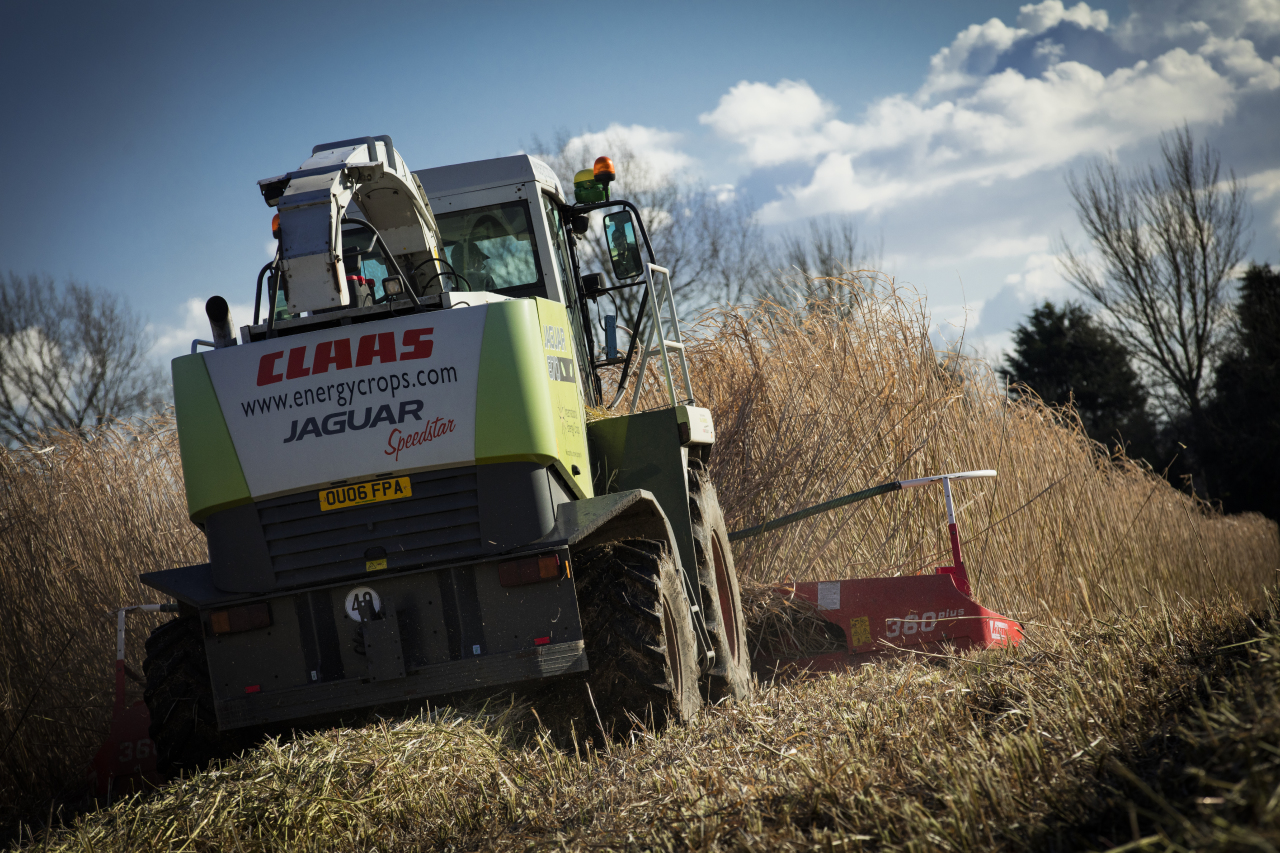
The miscanthus market is growing at a rapid rate and one Lincolnshire producer has planted 1000 hectares of the crop to service a handful of lucrative markets.
The Wilson family, now dedicated miscanthus growers, are inviting anyone interested in planting the crop to take a look at their set up and hear about their hugely successful business model, at a Terravesta and NFU hosted event, taking place on June 30.
"It took us around five years to plant up 1000 hectares of miscanthus, between 2003 and 2008. This was quite a big step then, because it was a relatively new crop," says Gary Harrison, farm manager at the Wilson family farm.
"Now the market has developed, there are a number of destinations for the crop. We sell the harvested cane to fuel local power stations, supply chicken farmers and equine businesses with the crop for bedding.
"We also grow it uniquely to split out the rhizome to sell to other growers to plant, we also offer a precision planting service with precision planters that we’ve purpose built for miscanths.
"The latest venture is fitting biomass boilers for farmers to help them to plant miscanthus to generate their own sustainable home grown heat."
Miscanthus 'much more lucrative'
The miscanthus is split between two farms, one in Bonby and one in Market Drayton. "We completely converted from arable crops to miscanthus on both sites, due to miscanthus being much more lucrative.
"It’s thriving on a mixture of sandy loam through to heavy clay soils and like any crop it does better on higher quality soils but it also yields well on the poorer quality land. On the heavy clay soils it copes well with drought.”
Gary says that they harvest between 10 – 18 tonnes per hectare and last year Terravesta came on board taking 1,500 tonnes of harvested crop destined for power stations as biomass.
"This year we’re supplying them with 5,500 tonnes – the company is expert in miscanthus supply chain management, with the ability to negotiate the best price for growers."
"There’s a sustainable future in miscanthus – it does very well on marginal land, on difficult to establish, heavier soils and areas that are hard to travel on.
"As the crop matures the rhizome actually increases the ground’s stability, making it easier to travel over, come harvest time.
"Yields generally increase until about year five then they stabilise. This year’s harvest has been very late because of extensive rain fall. Despite this, at Bonby, the crop has yielded 25% higher than in 2015, with a total of 2000 tonnes," he adds.
'Growing miscanthus gives producers more flexibility'
Jonathan Scurlock, chief renewable energy adviser at the NFU, is positive that farmers interested in planting miscanthus should not miss the opportunity to find out more about it.
"Because it thrives on lower grade, marginal land, with little or no inputs required, miscanthus offers a viable option to farmers looking to diversify.
"This farm walk will showcase a number of fields of different ages, so farmers can understand the technical aspects of the crop.
"Growing miscanthus gives producers more flexibility, in their use of land, complementing food crops in light of the highly volatile prices and currently low net margins from most other agricultural commodity enterprises," says Jonathan.
The farm walk is free to attend and takes place on June 30th at Hall Farm, Bonby, Lincolnshire DN20 0NR.
And guest-speaking on the day is Rob Wood, director of biomass at eco2 renewable energy plant, based in Brigg, who will be presenting on why miscanthus is fundamental to the future of the business.
The day starts with coffee at 10.30 am and will kick off with a presentation covering an overview of the miscanthus market in the UK from Terravesta and a talk from Rob Wood.
There will be an opportunity to walk a number of fields of mature crop and speak to existing growers and the day will conclude with a Q and A session over a light lunch at 14:00.
